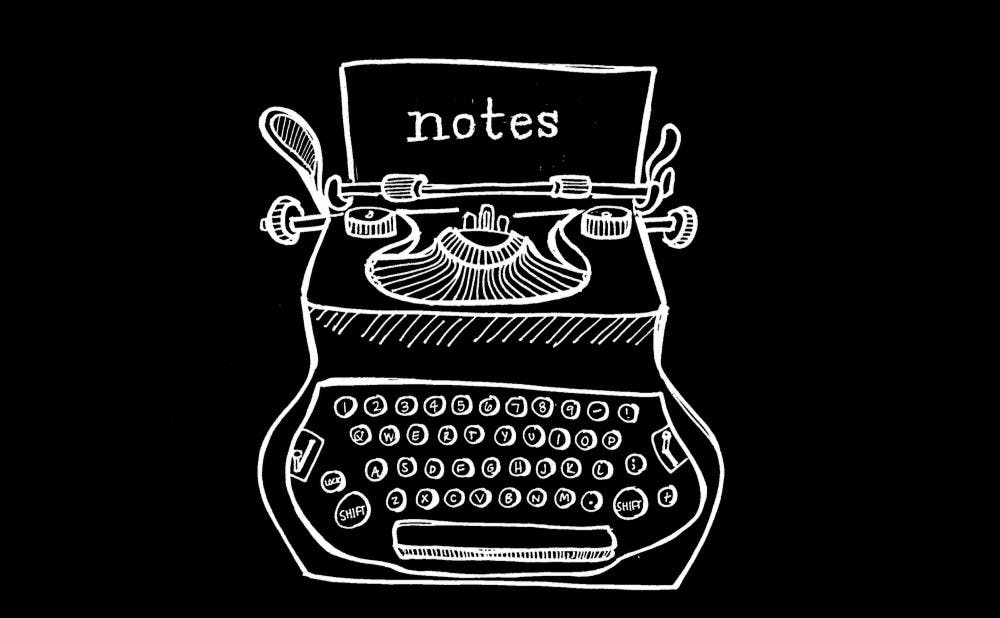One of the perks of being a writer at Recess is that I get to reach out to interesting people whom I would not easily be able to talk to if I were not writing articles about them. But after every interview follows the painful time when I have to play the recording of the interview on my computer and unwillingly listen to my voice.
Listening to the recording of my first interview was the worst. When my afternoon class at the Nasher ended, I ran to the Duke Performances building right across the road from the museum. I regretted my decision to schedule my interview ten minutes after the class, not expecting that the class would end later than usual that day. I was already nervous for my first interview as a Recess writer, but my racing heart after running made the nervousness worse.
I cringed every time I heard my voice from the recording of the interview. My voice was shaking. My habit of using complicated sentences became so bad that by the time I got to my last question, I had forgotten the subject of my sentence — it had gotten too long. As I listened to the recording and wrote down the details to my outline for the article in the dead silence of the Gothic Reading Room, I checked multiple times to make sure I had not accidentally unplugged my headphones so that no one else could hear the recording.
Every time I listened to a new recording, I found reasons to hate the way I talked. Whenever I said, “That’s interesting,” I sounded like Siri. I cringed as I heard myself laughing at parts of conversations not intended for laughter. I hated myself for my lack of communication skills and ability to express my genuine emotions. I got tired of hearing my recorded voice, which sounded more low-pitched and nasally than my usual voice.
But I kept all of the recordings on my computer along with the outlines of my articles, even though I never wanted to listen to them again.
When I was suffering from writer’s block while writing my art history essay last week, I scrolled through all of the files in my computer and came across the recordings. In a silent reading room on the second floor of Lilly Library, I wanted to do anything else but write a single word about a 1930s painting of a surrealist exhibition. So I put on my headphones, ensured it was well plugged into my computer and played the recordings.
My recordings all began with the same questions about if it is okay to record the interview, followed by the request for subjects to introduce themselves. Most of my first few recordings had unnecessary “um”s between the words and I wondered why I had to hesitate so much to ask people to introduce themselves. But the number of “um”s decreased in later recordings and my voice became louder in those. I began to replace the monotonous show of interest with follow-up questions. Although I still sounded like I was trying to imitate Julie Andrews’ voice from “Princess Diaries,” I realized I was becoming more interactive through a number of interviews.
I realized I cut out many of the details from the interviews to meet the word count. But those omitted details came back through the recordings and helped me recall moments from the interviews that made them more meaningful as parts of my life at Duke. I replayed a conversation with a visiting artist, in which I continuously rephrased what she said and asked questions, and recalled myself trying to picture her complex yet interesting world. The interview at a poetry reading on East Campus captured the conversation filled with jokes on a Thursday night at a small theater. I held my laughter as I remember the moment after the interview when a professor suggested I write his title as “squire of poetry.”
I still cringe when I hear my voice in those audio files, and I will never share them with anyone. But I keep them in my computer as unofficial records of the interactions with interesting people I have met — and as something to replay when I need some laughter.
Ashley Kwon is a Trinity first-year and a Recess staff writer.
Get The Chronicle straight to your inbox
Signup for our weekly newsletter. Cancel at any time.

